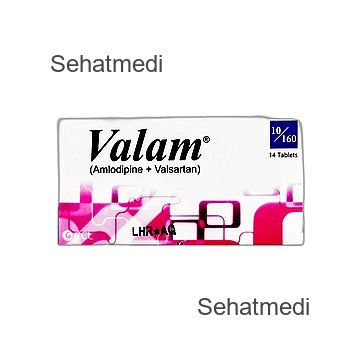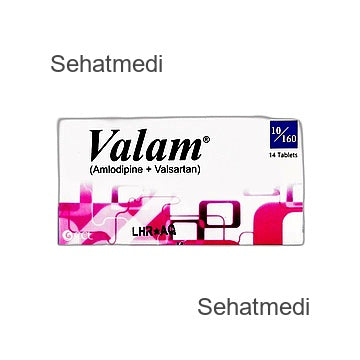Valam Tablets 10/160Mg
Valam Tablets 10/160Mg
Available in stock
Product Overview
Product Form: Tablets
Pack Size: 1x10 Tablets
Manufactured By: TABROS PHARMA PVT.LTD
Prescription Required: Yes
Product Details
Valam Tablets 10/160mg combine two powerful antihypertensive agents, Amlodipine Besilate and Valsartan, to effectively manage high blood pressure. Each tablet provides a balanced dosage of 10mg Amlodipine Besilate and 160mg Valsartan, working together to enhance blood pressure control. This combination therapy leverages the complementary mechanisms of both drugs, offering a comprehensive approach to treating hypertension.
Purposes
The primary use of Valam Tablets is for the treatment of essential hypertension. By combining Amlodipine, a calcium channel blocker, with Valsartan, an angiotensin II receptor blocker, Valam Tabs 10/160mg provide an additive antihypertensive effect, resulting in more effective blood pressure reduction than either component alone. This dual-action approach helps to manage and stabilize blood pressure levels, improving overall cardiovascular health.
Warning’s
Valam Tablets 160mg should not be used if you have a known hypersensitivity to Amlodipine, Valsartan, or any of the tablet’s excipients. It is contraindicated in patients with severe hepatic impairment, biliary cirrhosis, or cholestasis. Caution is advised when combining this medication with potassium supplements or potassium-sparing diuretics due to the risk of elevated potassium levels.
Adverse Effects
Common side effects of Valam 10/160mg include nasopharyngitis, headache, and peripheral edema. Other less frequent effects may involve dizziness, nausea, and abdominal discomfort. Rare but serious side effects include angioedema, which can cause significant swelling and airway obstruction. Always monitor for adverse effects and consult your healthcare provider if you experience any severe or persistent symptoms.
Cautions
Use Valam 160mg with caution in patients with renal artery stenosis or those with only one functioning kidney, as these conditions can lead to increased blood urea and serum creatinine. Regular monitoring is recommended to manage potential side effects and adjust treatment as needed. Ensure to follow all prescribed guidelines and consult your healthcare provider for any concerns related to the use of this medication.
Couldn't load pickup availability
Shipping
Shipping
Orders are processed within 24 hours (except weekends & holidays).
All cities near to islamabad delivery: 2-3 day
Other cities: 3-5 days.




